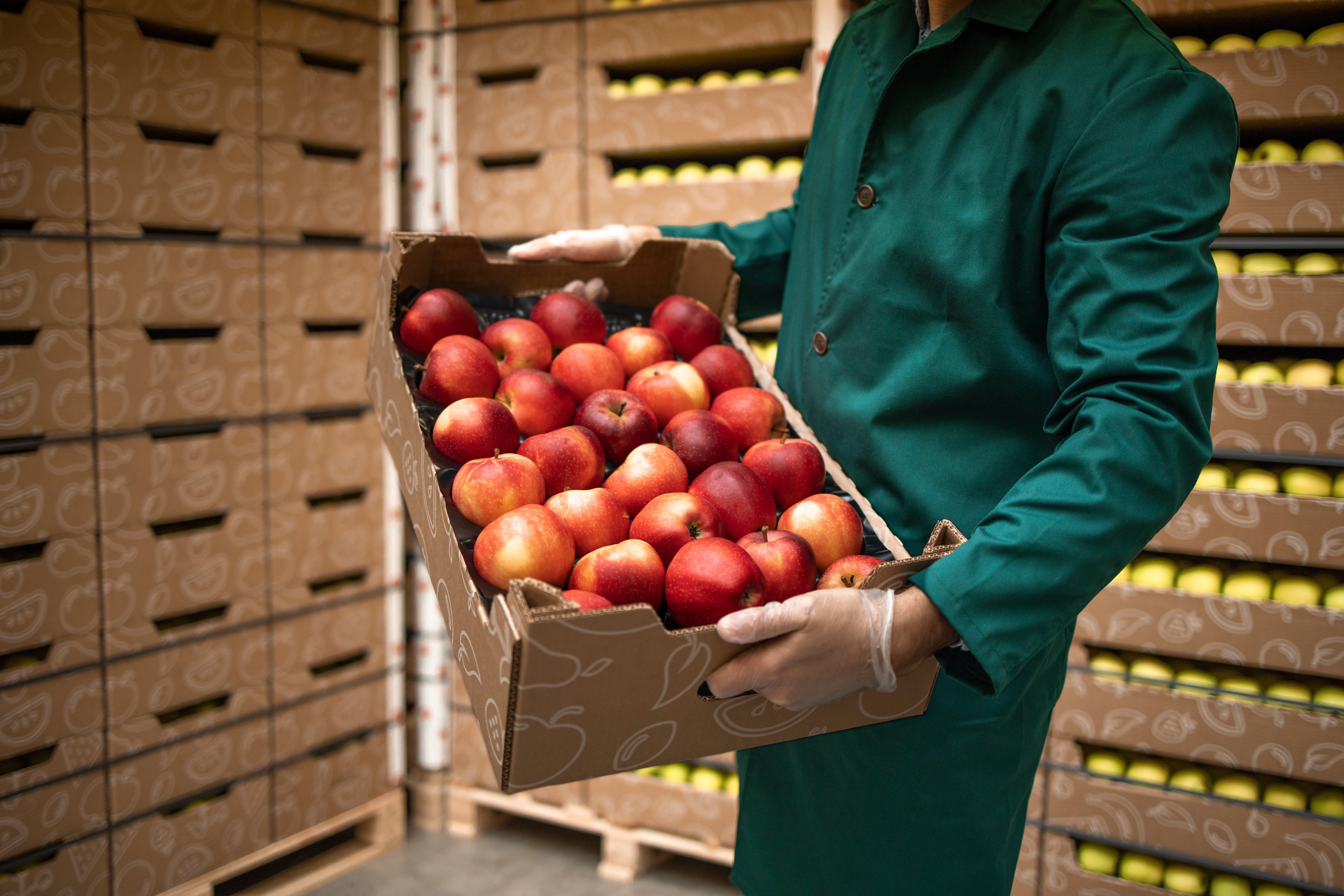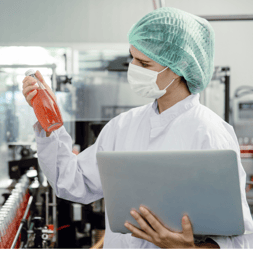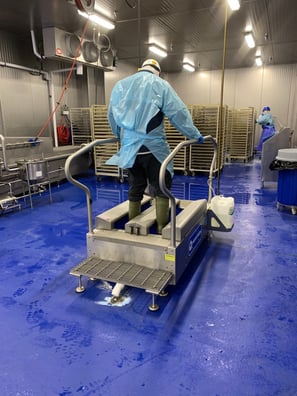The Interconnected Relationship Between Food Safety and Compliance
Food safety is of utmost importance to both consumers and the food industry. It is essential for maintaining public health and trust. Compliance with regulations and standards set by government agencies and industry organizations is a crucial aspect of achieving food safety. In this blog post, we will explore the intricate relationship between food safety and compliance, delving into why they are interconnected and how they work together to protect consumers and uphold the integrity of the food supply chain.
Gaining Context into Food Safety and Compliance

Food safety is an essential practice that involves the careful handling, preparation, and storage of food to prevent contamination and reduce the risk of foodborne illnesses. Consuming contaminated food can have severe consequences, ranging from mild digestive discomfort to life-threatening illnesses. The impact of compromised food safety extends beyond public health, affecting the economy and reputation of the food industry.
Food safety encompasses various factors, including:
-
Foodborne Pathogens: Microorganisms such as bacteria, viruses, and parasites have the potential to infiltrate our food, resulting in the development of foodborne illnesses.
-
Chemical Contaminants: This encompasses pollutants such as pesticides, metals with high toxicity levels, and food additives that can present health hazards when consumed in excessive amounts.
-
Allergens: Failure to accurately label products or prevent cross-contamination can lead to the inadvertent exposure of allergens to individuals with allergies or sensitivities.
-
Food Fraud: Intentionally deceiving consumers through the misrepresentation of food products not only poses potential health risks but also perpetuates economic fraud.
Learn about mitigating food safety risks with technology!
The Role of Food Safety and Compliance

Compliance with food safety regulations and standards serves as the foundation for protecting public health and cultivating consumer confidence. Government agencies like the Food and Drug Administration (FDA) in the United States, as well as international organizations such as the World Health Organization (WHO) and the Food and Agriculture Organization (FAO), have established comprehensive guidelines and regulations to ensure the safety of our food supply. Additionally, industry associations and organizations also play a vital role in setting their own standards to guarantee the quality and safety of food products.
Learn about FMSA Food Safety Requirements!
Compliance involves adhering to these regulations and standards in all aspects of food production, including:
-
Good Manufacturing Practices (GMPs) are the backbone of food production facilities, providing essential guidelines for maintaining high levels of cleanliness, sanitation, and quality control. These practices are the key to ensuring that every step of the production process is carried out with meticulous attention to detail, guaranteeing the highest standards of safety and integrity in the food industry.
-
Hazard Analysis and Critical Control Points (HACCP) is a systematic and meticulous strategy implemented to recognize and efficiently handle any potential risks that may arise during the entirety of the food production process.
-
Accurate labeling and meticulous allergen control measures are essential to guaranteeing the safety and well-being of consumers. By providing clear and precise information about ingredients and preventing any cross-contamination with allergens, we can ensure that individuals with allergies or sensitivities can confidently enjoy food products without any concerns.
-
The ability to track the source of products and swiftly initiate product recalls in the event of safety issues is an integral part of ensuring food safety and maintaining consumer confidence.
Download our GMP Checklist Infographic!
Why Food Safety and Compliance Matters
Compliance is crucial for several reasons:
-
Public Health: Complying with food safety regulations is essential in mitigating the occurrence of foodborne illnesses, thus safeguarding the well-being of consumers.
-
Consumer Trust: When consumers are aware that the food industry is committed to rigorous safety standards and complies with regulations, their confidence in the products they purchase is greatly enhanced. Compliance and transparent adherence to these standards play a vital role in building and maintaining consumer trust.
-
Legal and Financial Consequences: Non-compliance can result in legal and financial repercussions, including fines and lawsuits, which can severely impact a business's bottom line.
-
Reputation: A breach in food safety can tarnish a company's reputation, making it difficult to regain consumer trust even after rectifying the issue.
-
Global Trade: Compliance with international food safety standards is often a prerequisite for exporting and participating in the global food market.
Automated hygiene plays a crucial role in making food safety compliance easier and more efficient. With the advancement of technology, automated systems can be integrated into food production facilities to ensure high levels of cleanliness, sanitation, and quality control. These systems can monitor and regulate various aspects of hygiene, such as temperature control, hand hygiene frequency, and equipment maintenance. By automating these processes, the risk of human error and cross-contamination is significantly reduced.

Automated hygiene also allows for real-time monitoring and data collection, enabling quick identification and resolution of any potential risks or issues. This not only simplifies compliance with good manufacturing practices but also enhances the overall safety and integrity of the food supply chain. With automated hygiene systems in place, food producers can have greater confidence in their ability to meet and exceed food safety regulations, ultimately protecting public health and ensuring consumer trust.
Learn about navigating compliance issues for food safety!
The interconnection between food safety and compliance is undeniable. Compliance with regulations and standards pertaining to food safety serves as the driving force behind safeguarding the integrity of the food supply chain and protecting public health. It is a collective responsibility that involves food producers, manufacturers, distributors, and retailers, all of whom play a critical role in upholding food safety standards. The ongoing dedication to compliance, coupled with advances in food safety technologies and practices, remains vital in ensuring the safety and quality of the food we consume. By prioritizing both food safety and compliance, we can guarantee that our meals are not only delicious but also entirely safe for consumption.
Take our Product Selection Quiz to find out which automated hygiene station is right for you!






